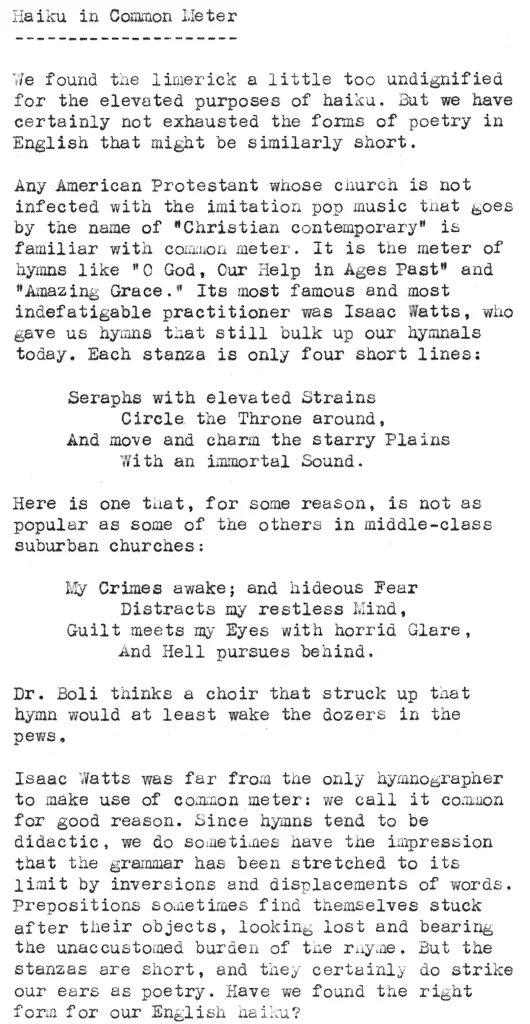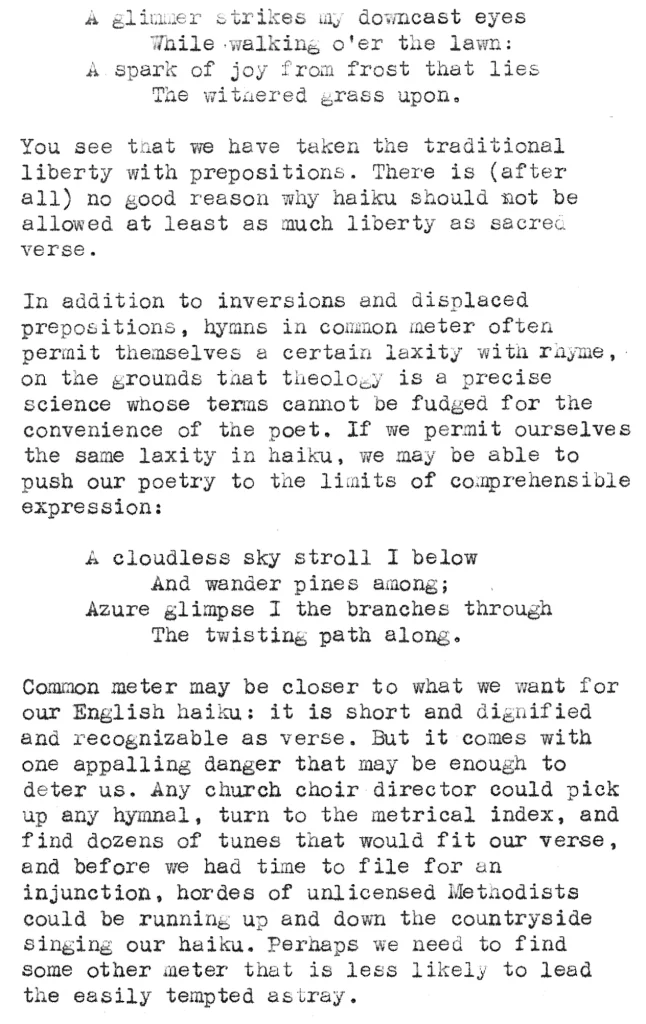

Transcribed below for searching, quoting, or anything else you can think of to do with about five hundred words. The typewriter is a Woodstock, which is Dr. Boli’s preferred machine for his un-American activities.
We found the limerick a little too undignified for the elevated purposes of haiku. But we have certainly not exhausted the forms of poetry in English that might be similarly short.
Any American Protestant whose church is not infected with the imitation pop music that goes by the name of “Christian contemporary” is familiar with common meter. It is the meter of hymns like “O God, Our Help in Ages Past” and “Amazing Grace.” Its most famous and most indefatigable practitioner was Isaac Watts, who gave us hymns that still bulk up our hymnals today. Each stanza is only four short lines:
Seraphs with elevated Strains
Circle the Throne around,
And move and charm the starry Plains
With an immortal Sound.
Here is one that, for some reason, is not as popular as some of the others in middle-class suburban churches:
My Crimes awake; and hideous Fear
Distracts my restless Mind,
Guilt meets my Eyes with horrid Glare,
And Hell pursues behind.
Dr. Boli thinks a choir that struck up that hymn would at least wake the dozers in the pews.
Isaac Watts was far from the only hymnographer to make use of common meter: we call it common for good reason. Since hymns tend to be didactic, we do sometimes have the impression that the grammar has been stretched to its limit by inversions and displacements of words. Prepositions sometimes find themselves stuck after their objects, looking lost and bearing the unaccustomed burden of the rhyme. But the stanzas are short, and they certainly do strike our ears as poetry. Have we found the right form for our English haiku?
A glimmer strikes my downcast eyes
While walking o’er the lawn:
A spark of joy from frost that lies
The withered grass upon.
You see that we have taken the traditional liberty with prepositions. There is (after all) no good reason why haiku should not be allowed at least as much liberty as sacred verse.
In addition to inversions and displaced prepositions, hymns in common meter often permit themselves a certain laxity with rhyme, on the grounds that theology is a precise science whose terms cannot be fudged for the convenience of the poet. If we permit ourselves the same laxity in haiku, we may be able to push our poetry to the limits of comprehensible expression:
A cloudless sky stroll I below
And wander pines among;
Azure glimpse I the branches through
The twisting path along.
Common meter may be closer to what we want for our English haiku: it is short and dignified and recognizable as verse. But it comes with one appalling danger that may be enough to deter us. Any church choir director could pick up any hymnal, turn to the metrical index, and find dozens of tunes that would fit our verse, and before we had time to file for an injunction, hordes of unlicensed Methodists could be running up and down the countryside singing our haiku. Perhaps we need to find some other meter that is less likely to lead the easily tempted astray.